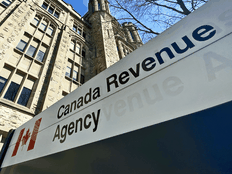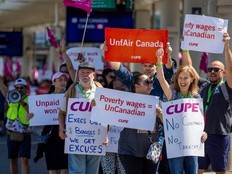GUNTER: Federal civil servants out of touch with reality of private-sector counterparts

Article content
Nathan Prier, president of the Canadian Association of Professional Employees, one of the federal government’s largest unions, said earlier this week that Treasury Board president Shafqat Ali and the rest of the Carney cabinet must make regaining the trust of federal civil servants one of the Liberal government’s highest priorities.
Huh!?
Recommended Videos
You might think reducing out-of-control spending or reviving the economy would be tops. Or battling the Trump tariffs or building an East-West pipeline?
How about quelling threats to national unity or building an armed forces that can actually defend this country from threats around the world and in our own Arctic?
Nope, apparently civil servants feel hard done by and demand the government make nice-nice with them.
Over what?
Prier explained, “Trust is pretty broken because of a long pattern of bad-faith consultation and disrespect for evidence-based decision-making.”
I can’t speak to what he meant by “disrespect for evidence-based decision-making,” but as a taxpayer, I have broken trust, too. I don’t trust public servants to discern between real evidence and consultants’ reports that simply reinforce bureaucrats’ own “progressive” biases.
Take two examples: harm-reduction drug policies and lenient bail rules. Both are very clearly failures. And failures that have put the public in danger by prematurely releasing dangerous offenders onto Canadian streets and by giving addicts free drugs to shoot up in public.
Civil servants pushed both policies (and still cling to them), based on “evidence” provided by academics who believe that locking up criminals is cruel and unusual.
But quite apart from whether the Trudeau government followed the advice of their bureaucrats, or not, how else were federal employees disrespected (in their minds)?
One big beef, apparently, is the fact they were told to go back to the office three days a week rather than two. Ah! The indignity of it all.
When the treasury board made that announcement after the long weekend last May, many civil servants were incensed. They held angry rallies because it meant they would have to — gasp — commute again! And — shriek — pay for child care!
You know, like the rest of working Canadians. The poor dears.
Speaking of evidence, there is indirect evidence that federal civil servants may be skirting the return order. Statistics Canada’s annual report on commuting shows that just one in four people in Toronto is still working from home on any given day. One in five in Montreal and Vancouver. One in 10 in Saskatchewan.
Meanwhile in Ottawa, the hub of the federal civil service, one in three is working from home. Still.
It’s similar to when federal workers struck in the summer of 2023 and were shocked the public had no sympathy for their exorbitant wage and benefit demands.
Civil servants, especially the federal variety, are already a privileged class compared to their private-sector counterparts. They make more money, work fewer hours, take longer vacations, retire earlier, have significantly better pensions and benefits, and enjoy a level of job security unheard of outside the hallowed halls of government.
Almost no federal civil servants were laid off during the pandemic, and very few are ever disciplined when their agencies foul up (such as when they cannot process a passport in under six months).
Indeed, 80 per cent or more of federal managers are paid annual bonuses of $17,000 on average, even when their offices fail to meet minimum performance standards.
During the Trudeau years, the civil service expanded by 40 per cent and enjoyed 70 per cent greater pay, which means wage increases were galloping ahead faster even the new civil servants were being hired.
When the largest public-sector union struck in 2023, the federal government paid them a big bonus to go back to work, on top of giving them a healthy pay raise.
I’m betting a lot of private-sector workers wish they were disrespected as badly as federal civil servants.













Postmedia is committed to maintaining a lively but civil forum for discussion. Please keep comments relevant and respectful. Comments may take up to an hour to appear on the site. You will receive an email if there is a reply to your comment, an update to a thread you follow or if a user you follow comments. Visit our Community Guidelines for more information.